Some thoughts on the progress we have (and have not) made as queer folk, at least here in North America, measured by the Romanovsky & Phillips music catalog. The following notes were originally published in my personal blog a few years ago.
Some song lyrics are dated- reflecting changes in law, politics or broader society. Note that I don’t accept the premise that Folk Music (with or without gay-specific lyrics) is out-dated. It is not the most popular form of music in dance clubs or ‘top 40’ radio stations. But it continues to be a vibrant form of expression. It also reflects (not always immediately) changes in the culture that surrounds it.
With something over 60 songs on the still-available R&P titles, and dozens more on Ron’s solo albums, there are really only a few to discuss. There are definitely some lyrics that are the product of their time; The Answering Machine Song [from Trouble In Paradise, 1986] refers to a piece of technology many young folk know only as a relic of their grandparents’ time, or found in movies from last century. Of course, ‘telephone tag’ is still around, now as ‘text message tag’ when trying to get plans set in place.
References in The Telephone Company Loves Me [from Hopeful Romantic, 1992] to ‘calling collect’ and long distance charges seem anachronistic to folks with Free Calling across the USA, Canada and Mexico. And whatever happened to MCI? However, Ron’s desire to have “a phone inside your briefcase” so he “can always reach you, no matter where you are” has pretty much come to pass for most of us. The number of North Americans who can afford a cell phone and don’t have one is pretty much limited to folks who pend most of their time outside any major carriers’ service areas.
Perhaps of greater import are the songs that reference political or legal situations that have seen great improvement.
In August of 1982 Michael Hardwick of Atlanta GA was arrested and convicted for having consensual sex with another man. Four years later the Supreme Court ruled that gay sex was not protected under the US Constitution [Bowers v. Hardwick]. Which led to Ron writing:
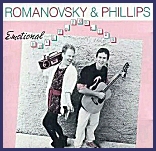 “Who would have thought that the courts would uphold
“Who would have thought that the courts would uphold
An archaic law that’s a hundred years old?”
The Sodomy Song [from Emotional Rollercoaster, 1988]
In 2003 the Supremes reversed their decision and announced that gay sex (at least in some forms) was indeed Constitutional [Lawrence v. Texas]. A few months later the State of Massachusetts began recognizing full marriage equality following a state Supreme Judicial Court ruling.
Don’t Ask; Don’t Tell gets a stanza in When Heterosexism Strikes:
Until a witch hunt of McCarthy style
Demanded he be put on trial
[from Be Political, Not Polite, 1991]
As well as the title track from Brave Boys:
“You brave boys
Brave boys continue the fight
You are brave boys, every one.“
[Brave Boys (The Best & More of Romanovsky & Phillips), 1991]
In Ron’s 2008 solo album Turn Up The Fun! he took on marriage equality with The Sanctity of Marriage. In 2010 he produced a music video for it. Although a few states had joined Massachusetts, there was still resistance to nation-wide recognition of that basic right. Full marriage equality across the entire United States is recognized as a constitutional right June 26, 2015 [Obergefell v. Hodges]. The humour (sarcasm?) of Ron’s song and video are still enjoyable; in a ‘we see your hypocrisy’ kind of way.
With those political gains, and a generally growing acceptance of LGBTQ folk in ‘western’ societies, there has been certain segments of our communities that have chosen assimilation. And even young queers don’t necessarily feel compelled to fit into stereotypes from previous generations. They may well identify with these lyrics:
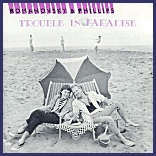 “It’s so hard to be a homo, it’s hard to play the game
“It’s so hard to be a homo, it’s hard to play the game
When you don’t own a poster of Marilyn what’s-her-name.“
What Kind of Self-Respecting Faggot Am I?” [from Trouble In Paradise, 1983]
This blog post from 2012 also discusses changing icons; Judy Garland in that case.
Of course there’ve always been gay folk who don’t fit a stereotype. I don’t have a great fashion sense, don’t use ‘product’ in my hair and can’t distinguish a Britney song from one by (oh, who else is popular in dance/pop music these days?). I’ve never been terribly athletic, outside of sexual activity and don’t have any desire to have kids. I do luv listening to ballads being sung by the divas of my youth, I’m not afraid to cry- a blend of stereotypes I guess.
Lyrics, poetry and fiction all address the human condition by focusing on specific examples. No one story/song can be a perfect fit for everyone but well-done ones do present aspects of life that many of us recognize. In our selves or others. Whether or not the style, language or setting distracts from the connexion depends on the skill of the story teller.
How we self-identify and how society labels us (and how we react to that) changes over time. R&P were early adopters of the philosophy of reclaiming words that have been used against us. In addition to the use of Faggot in the above-quoted song, they like to use Queer in an affirming way. At the same time, they had no use for people who would not come out for selfish reasons:
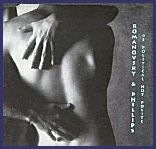 “They say that she signed a contract
“They say that she signed a contract
To keep her lesbian lips sealed tight.
When she feels that she’s established
Will she come out for all to see?“
Queers In The Closet [from Be Political, Not Polite, 1991]
It appears they had a softer stance on closeted folk not in a position to safely and powerfully come out and not actively engaged in denying queer folk full equality:
“Maybe some day I’ll find a way (Some day soon I’ll find a way)
To comfort them (to calm their fears)
And let them know that things will change
If they can make it through these years.“
“One Of The Enemy” [from Be Political, Not Polite, 1991]
This song is about a closeted school teacher, and touches on the struggle to be authentic in a world that often condemns us for it. As a side note, these lyrics would find their full message a generation later in the It Gets Better Campaign against young queers committing suicide.
Oh, and the real possibility of suicide was addressed in their music:
“But there was a time when it seemed like the answer
Was a bottle of pills, or a razor blade.“
“One Way Out” [from Let’s Flaunt It!, 1995]
And, less directly, in an earlier song:
“But if it’s killing anyone, I think it’s killing me
‘Cause it tears me up inside to hide my true identity.“
Straightening Up The House [from Emotional Rollercoaster, 1988]
After reading the above (as blog posts), one of my “straight, but not narrow” friends asked if there were any R&P songs that weren’t “all gay” that they might relate to. First of all, I would like to think that anyone who’s a friend of mine is capable of listening to R&P and appreciating songs of love or social injustice even if the pronouns or specific issues don’t fit their life exactly. But to go beyond that, here are some non-gay-specific lyrics by Ron and Paul for the “homosexually challenged” (to quote The Flirtations’ Live: Out On The Road CD).
From their first full-length album I Thought You’d Be Taller(1984) through to Let’s Flaunt It! (recorded live in 1995) they present songs of protest and queer rights- but also songs about love, dating, mental health and other social ills. The majority of selections on Ron’s solo albums (listed below) have no direct reference to orientation.
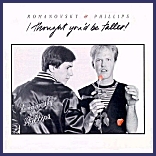 The joys & tribulations of #dating are featured in the following tracks:
The joys & tribulations of #dating are featured in the following tracks:
# I Can Have Attitude (ITYBT*);
# The Prince Charming Tango (ITYBT);
# Cat And Mouse (ITYBT);
# The Answering Machine Song (TIP);
# Guilt Trip (TIP);
# Emotional Rollercoaster (ER);
# Red Moon Over Boston (BPNP);
# Journal Entry (BPNP);
# Tango Indigesto (BPNP);
# Closing Chapter (BPNP); and
# Don’t Sleep With Your Ex (LFI).
Pretty much each of the dozen songs on Ron’s first solo album- Hopeful Romantic– is about dating.
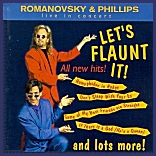 And there’s plenty of social commentary- thoughts on #suicide, #drag, #gender roles & expectations, #mental health and general #social ills are found in:
And there’s plenty of social commentary- thoughts on #suicide, #drag, #gender roles & expectations, #mental health and general #social ills are found in:
@ Womb Envy (ITYBT);
@ Outfield Blues (ITYBT);
@ Living In The Nuclear Age (ITYBT);
@ Paint By Numbers (ITYBT);
@ Lost Emotions (TIP);
@ Carnival People (TIP);
@ Wimp (TIP);
@ Living With AIDS (ER);
@ My Mother’s Clothes (ER);
@ The Woman Next Door (ER);
@ Waltz For A New Age (ER);
@ Oh No… I’m In Love (BPNP);
@ Love Is All It Takes (BPNP);
@ No False Hope (BPNP);
@ One Way Out (LFI);
@ Burning Angels (LFI).
* R&P Albums:
(ITYBT) I Thought You’d Be Taller (1984)
(TIP) Trouble In Paradise (1986)
(ER) Emotional Rollercoaster (1988)
(BPNP) Be Political Not Polite (1991)
(BB) Brave Boys (1994)
(LFI) Let’s Flaunt It! (1995)
* Ron’s Solo Albums:
(HR) Hopeful Romantic (1992)
(JE) Je M’appelle Dadou (2002)
(IAB) It’s A Boy (2006)
(P2P) Pittsburgh to Paris (2006)
(TUTF) Turn Up The Fun (2008)
(AIP) April In Paris (2008)
(LAC) L’accordeoniste (2009)
Copyright Notice
All lyrics quoted above are © Copyright by Ron Romanovsky or Romanovsky & Phillips, Published by Bodacious Music (ASCAP), Distributed by Fresh Fruit Records, and used by permission. All rights reserved.
